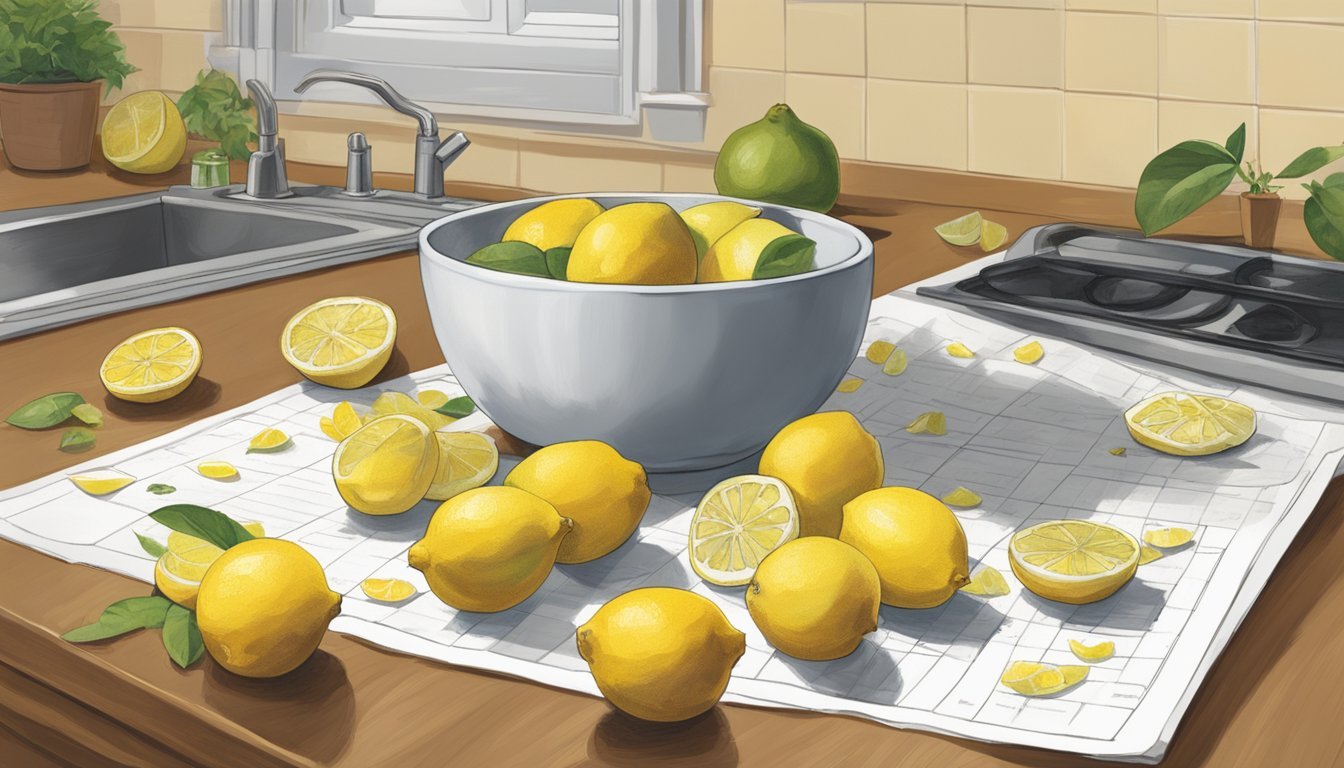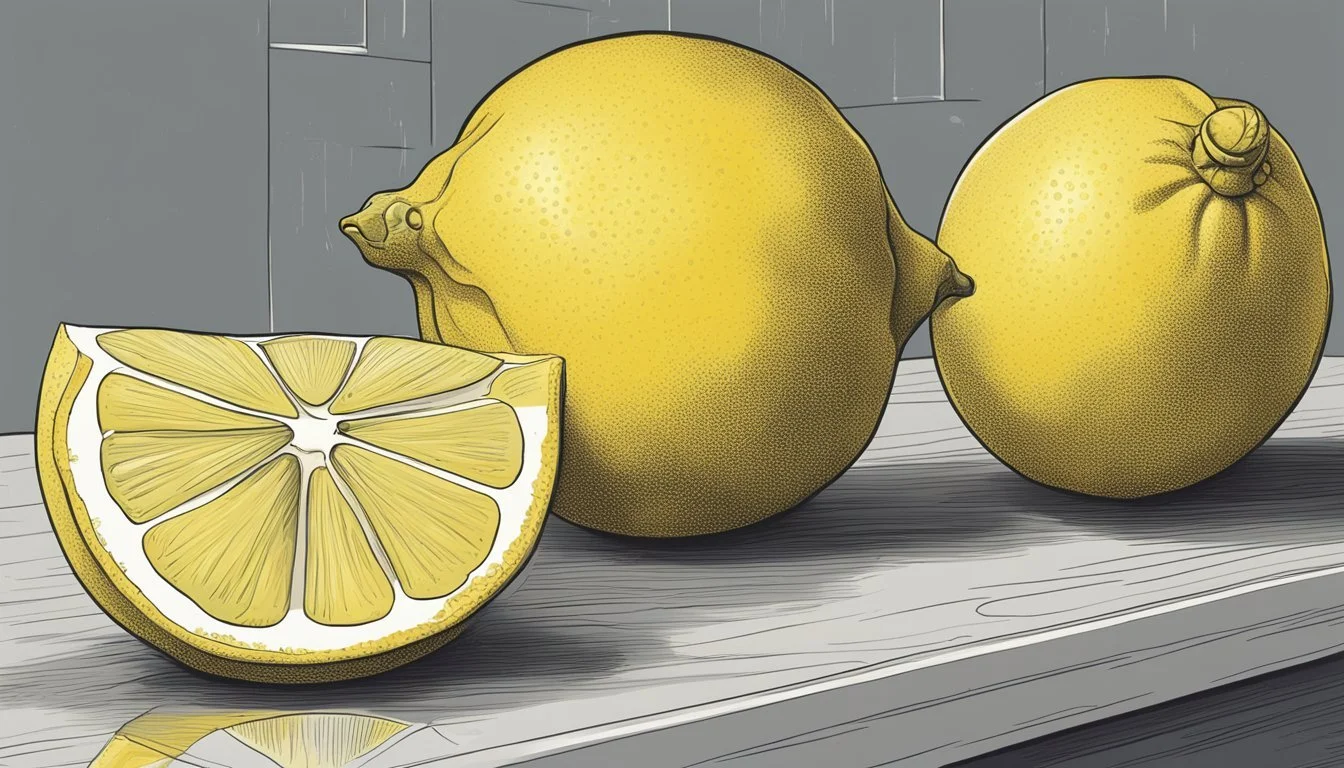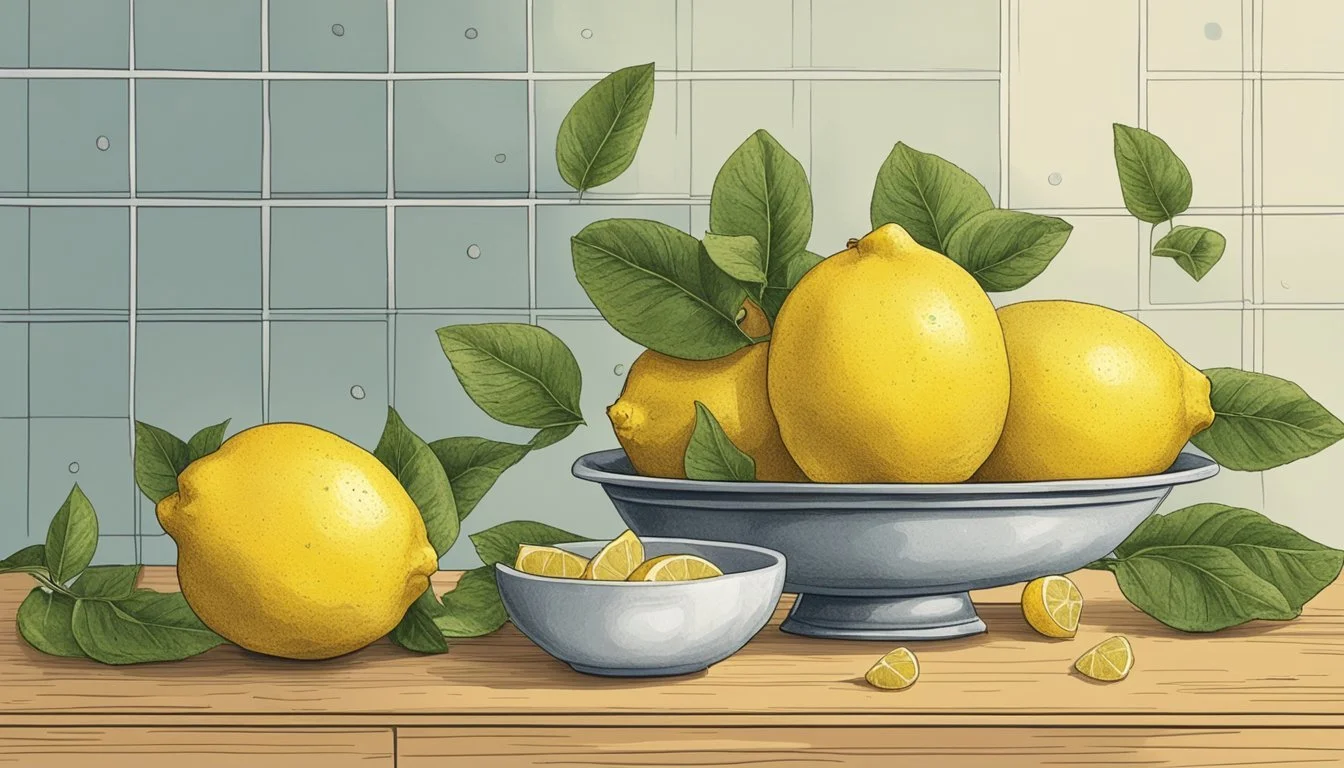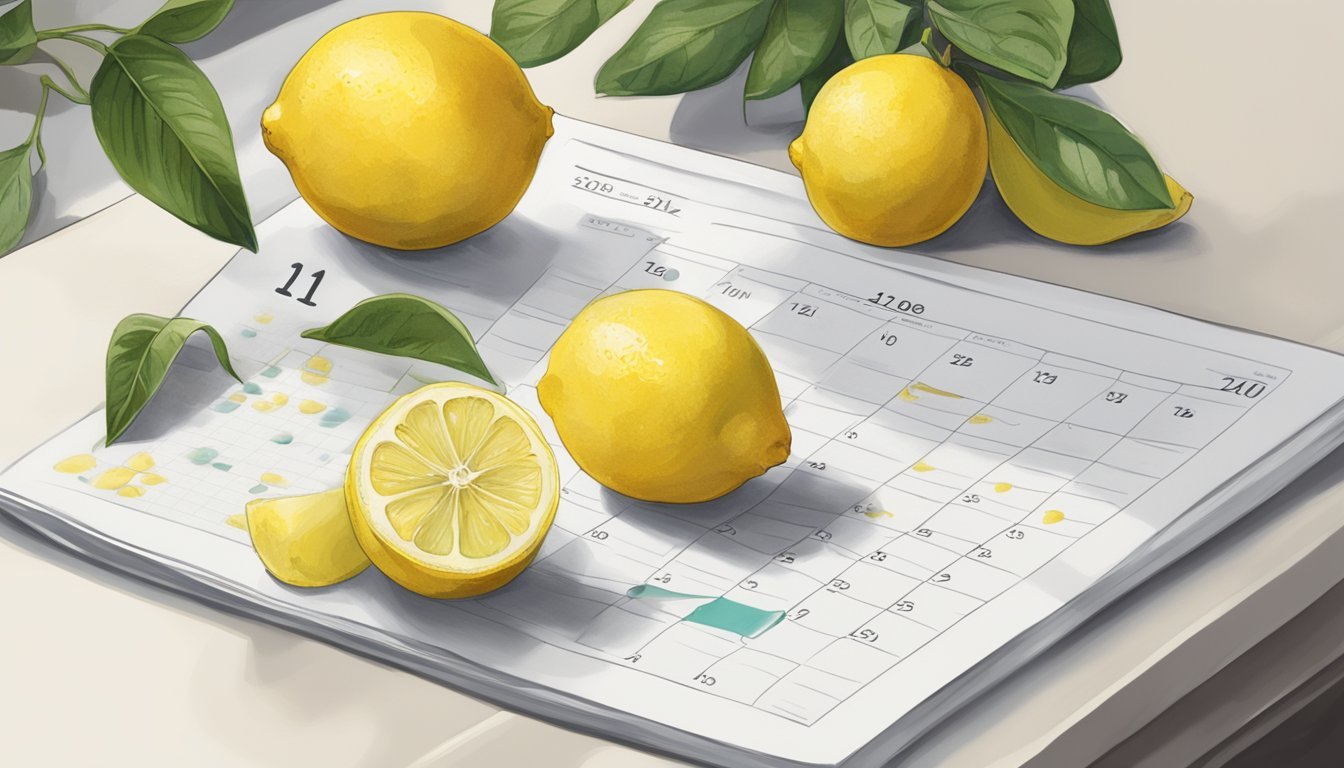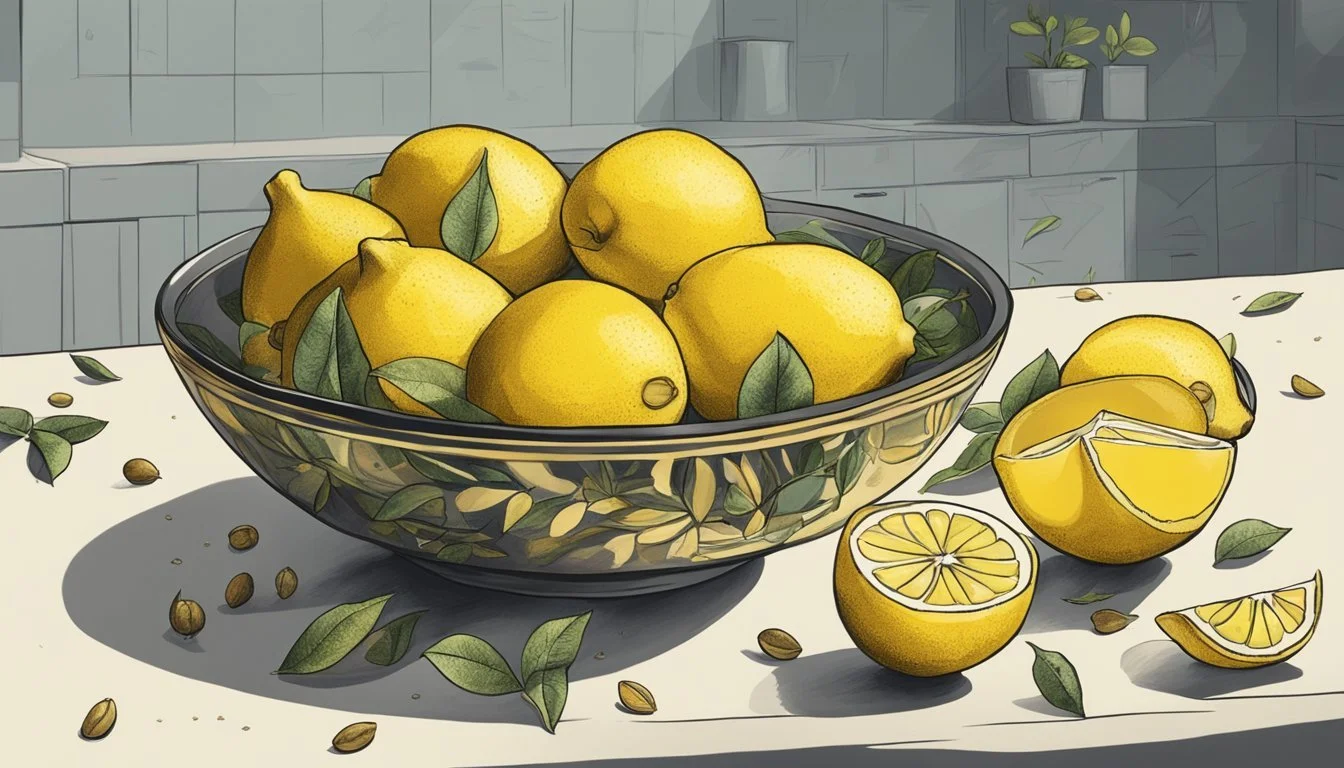How Long Do Lemons Last?
Understanding Citrus Shelf Life
Lemons are a versatile citrus fruit known for their bright yellow color and tart flavor, incorporated widely in both culinary and non-culinary applications around the world. Their acidity and refreshing taste make them a popular choice for enhancing a variety of dishes, drinks, and for use as a natural cleaning agent as well. How long lemons last depends significantly on the storage method employed, which can affect their flavor, freshness, and usability.
Under typical room temperature conditions, lemons generally maintain their freshness for about one week. However, individuals looking to prolong the life of their lemons can opt for refrigeration, a strategy that slows down the degradation process. When stored in a refrigerator, whole lemons can remain fresh for up to four to six weeks, with proper storage techniques leading to an extended shelf life, which is especially beneficial for those looking to reduce food waste and ensure a steady supply of fresh lemons.
It’s important to note that once lemons are cut, their longevity decreases, with the exposed flesh tending to dry out or become susceptible to mold. Sealed containers or plastic wraps can slightly extend the freshness of cut lemons in a refrigerator to a few days up to a week. With accurate knowledge and suitable storage methods, consumers can efficiently manage the shelf life of their lemons, making the most of their tangy, zesty goodness.
Factors Influencing Lemon Longevity
The shelf life of lemons can be significantly affected by how they are stored and the conditions they are kept in. Factors such as storage environment, container type, and humidity and temperature levels play pivotal roles in maintaining the freshness of lemons.
Storage Environment
The place where lemons are stored determines their longevity. Lemons stored at room temperature in a kitchen will generally last about a week. However, those kept in a refrigerator, specifically in the crisper drawer, can remain fresh for up to a month. It's crucial to keep them away from direct sunlight and areas that experience temperature fluctuations.
Container Type
Container type is important for extending the shelf life of lemons. Storing lemons in a resealable plastic bag or an airtight container can prevent excess moisture and air from spoiling them. Cut lemons should be placed in a container with a lid or wrapped in plastic wrap before refrigeration to maintain their freshness for a few days.
Humidity and Temperature Levels
Optimal humidity and temperature levels are key to preserving the freshness of lemons. Lemons thrive in moderate humidity and cool temperatures. A refrigerator provides an ideal environment with a stable temperature around 37-41 degrees Fahrenheit (3-5 degrees Celsius). High humidity can promote mold growth, while low humidity may dehydrate the fruit.
Optimal Storage Methods
The longevity and freshness of lemons can be greatly enhanced with proper storage techniques. This section explores the most effective ways to store whole and cut lemons, as well as various preservation methods to extend their shelf life.
Storing Whole Lemons
In the Fridge: For maximum freshness, whole lemons should be placed in a plastic bag with as much air removed as possible before sealing. They may be stored in the crisper drawer of the refrigerator to extend their shelf life.
On the Counter: If shorter storage is needed, lemons can be kept on the counter for up to a week, but they should be transferred to the fridge for longer storage.
Storing Cut Lemons
Refrigeration: Store cut lemons in an airtight container or wrapped tightly with plastic, beeswax wrap, or aluminum foil in the fridge to prevent drying out and absorption of other food odors.
Food Storage Chart:
Cut Lemon Storage Container Type Shelf Life Fridge Airtight Container 3-4 Days Fridge Plastic Wrap 3-4 Days Fridge Beeswax Wrap 3-4 Days
Lemon Preservation Techniques
Freezing: Whole lemons can be frozen by placing them in a freezer-safe bag. This method can extend their usability for three to four months. To utilize frozen lemons, thaw them in cold water or briefly in the microwave.
Drying: Lemons can be dried using an oven or a dehydrator. Once dried, they should be stored in an airtight container, away from moisture and light to maintain flavor, for up to a year.
Shelf Life of Lemons
Lemons have varying shelf lives depending on how they are stored. Proper storage methods can significantly extend their usability, whether left out on the counter, refrigerated, or frozen.
On the Counter
Whole, fresh lemons typically last for about 1 to 2 weeks when kept at room temperature on the counter. The key is to keep them in a cool, dry place away from direct sunlight to prolong their freshness.
In the Refrigerator
When stored in the refrigerator, lemons can maintain their quality for about 3 to 4 weeks. For optimal storage, place the lemons in a plastic bag to retain moisture and prevent them from absorbing odors from other foods.
In the Freezer
Lemons can last for 1 to 2 months in the freezer if properly prepared. To freeze lemons, one should place them in a freezer bag, expel as much air as possible, and seal it tightly. Thawed lemons may be mushy but are still suitable for juicing.
Signs of Aging in Lemons
Recognizing the signs of aging in lemons is critical to avoid using fruit past its prime. These changes can affect flavor and zest quality, and can eventually lead to spoilage.
Visual Changes
Lemons exhibit noticeable visual signs as they age. Initial signs might include a dulling of the lemon's bright yellow color, often progressing to brown or greenish spots indicating mold. Discoloration is a key indicator and often precedes further spoilage.
Texture Variations
A fresh lemon should feel firm and heavy for its size. As lemons age, they may become squishy or wrinkled, and their rinds can lose the tautness associated with freshness. A slimy or overly soft texture, especially around wedges, is a clear sign that a lemon is past its prime. Lemon zest from such fruit will not have the same vibrant aroma or potent flavor.
Aroma Alterations
A healthy lemon emits a zesty, citrus aroma. An older lemon may lose this characteristic smell, signaling that its flavor may be diminished. Any off-putting aromas or an absence of scent are indicators the lemon is no longer fresh. A rotten lemon may have a sour or fermented smell, deeply distinct from its original fresh, citrusy aroma.
Impact of Lemons on Surrounding Foods
When storing lemons, it's crucial to consider their influence on nearby foods due to ethylene production and their potent citrus aroma which can affect flavor profiles.
Ethylene Gas Effects
Lemons are low ethylene producers; however, they can still impact fruits that are sensitive to this naturally occurring gas. Ethylene gas promotes ripening and can lead to overripening or spoilage. For example, if lemons are stored next to bananas or avocados, which are highly sensitive to ethylene, they might ripen more quickly. Conversely, citrus fruits like oranges, limes, and grapefruit also produce ethylene gas but at relatively low levels, meaning they can be stored together with lemons without significant impact.
Citrus Aroma Transfer
The aroma of lemons is distinct and can easily transfer to other food items, especially those with porous surfaces or that easily absorb odors. For instance, sweet oranges stored alongside lemons might pick up the lemon scent, altering their expected flavor profile. Similarly, butter or soft cheeses (What wine goes well with soft cheeses?) placed in proximity to lemons can adopt a citrus scent. This aroma transfer is important to consider when aiming to maintain the pure flavors of other produce and food items in storage.
To manage these effects:
Store lemons separately from ethylene-sensitive produce to extend shelf life.
Consider sealing lemons in a container to minimize aroma transfer.
Lemon Usage and Recipes
Lemons, with their tangy freshness, enhance a variety of culinary dishes, from drinks to desserts. Their juice and zest are integral to certain recipes, offering a burst of flavor that is both bright and robust.
Juicing and Zesting
Juicing: When one juices a lemon, they extract the citrus liquid that imparts a fresh flavor to beverages like lemonade or can be used as a key ingredient in dressings and marinades. Freshly squeezed lemon juice is preferable for the most vibrant taste and should be stored in a sealed container in the refrigerator for 3 to 4 days to maintain its flavor.
Tools for juicing:
Handheld juicer
Electric juicer
Manual reamer
Zesting: The rind of a lemon, also known as zest, is often used to add a concentrated lemon aroma to baked goods and desserts. When zesting, only the outer yellow layer should be grated, avoiding the bitter white pith underneath.
Tools for zesting:
Microplane
Box grater
Zester
Cooking and Baking
Lemons play a versatile role in cooking and baking. They can be incorporated fresh into savory dishes or desserts, imbuing them with a citrusy depth that complements the other flavors present.
In savory dishes: Lemons can be used in the form of slices or wedges to garnish seafood, or the juice can be included in sauces.
In baking: Lemon zest or juice is often added to batters and doughs for cakes, cookies, and other confectioneries to achieve a bright lemon flavor that balances sweetness.
Lemon recipes are diverse and expansive, with their application easily spanning from a glass of refreshingly simple lemonade to an elaborate lemon-infused dessert.
Preventing Food Waste
Reducing food waste is essential when managing the longevity of lemons. Strategically handling and utilizing lemons can prevent unnecessary waste and ensure that every part of the lemon is used effectively.
Proper Food Disposal
Lemons store best in a cool, moist environment. Typically, they maintain their freshness when housed inside a refrigerator, preferably in the produce drawer. To further enhance their longevity, one can use perforated plastic bags to allow for air circulation, or store them in an airtight container, even something as simple as a Ziploc bag, to retain moisture and prevent dehydration. When disposing of lemons that have reached the end of their life, consider a composting approach, which turns organic waste into a nutrient-rich soil amendment, thus supporting the sustainable cycle of food resources.
Creative Utilization of Aging Lemons
Before lemons spoil, they can be revitalized through various preservation techniques:
Water Immersion: Submerging whole lemons in a jar of water inside the refrigerator can extend their shelf life.
Vinegar Solution: Briefly soaking cut lemons in a diluted vinegar solution helps to kill surface bacteria and maintain their quality.
The drying process—either in an oven or a dehydrator—is also a proficient method to preserve lemons. Dried lemon slices or zest can be stored and used for up to a year, thus significantly reducing food waste. The desiccated remnants are perfect for flavoring dishes or even for making homemade cleaning agents.
Food Safety Concerns
When it comes to lemons, understanding proper storage and the identification of spoilage signs are critical for preventing foodborne illnesses.
Foodborne Illness Prevention
One must store fresh lemons appropriately to prevent foodborne illness. Lemons should be kept in a refrigerator, specifically in the crisper drawer to maintain optimal freshness for as long as possible. Refrigeration slows down the degradation process and can extend the life of lemons from a mere week at room temperature to three to four weeks. Proper storage not only retains the lemons' quality but also inhibits the growth of pathogens that could lead to foodborne illnesses.
Recognizing Unfit Lemons
Detecting signs of spoilage in lemons is straightforward. Consumers should routinely check for the following:
Softness: A ripe lemon is firm to touch; any indication of soft spots can signal the beginning stages of decay.
Signs of Spoilage:
Mold growth, which may manifest as fuzzy spots
Off odor, which is not the typical citrusy smell expected from lemons
Discoloration, such as brown or dark spots
Once any of these signs are noticeable, the lemon should not be consumed, as these are indicators that the lemon may harbor bacteria or fungi that can cause illness.
Conclusion
Lemons have varying lifespans depending on their storage conditions. Typically, when stored at room temperature, a whole lemon can last up to one week. If one opts for refrigeration, the lifetime extends to three to four weeks due to the cooler environment slowing down the decomposition process.
For cut lemons or wedges, refrigeration is essential to maintain freshness, and they should be used within three to four days. It's important to store them in a sealed container or a plastic bag to minimize exposure to air, which can accelerate spoilage.
Room Temperature: Place whole lemons in a cool, dry spot away from sunlight.
Refrigerator: Use a crisper drawer to keep whole lemons fresh for up to four to six weeks.
Sealed Bags: Store whole or sliced lemons in sealed bags or containers to prolong freshness.
Signs of spoilage include a soft or mushy texture, discoloration, and an off smell. It's vital to inspect lemons before use to ensure they haven't gone bad. Even with proper storage techniques, all lemons will eventually spoil, so regular checks are recommended.
By understanding these guidelines, one can ensure the longest possible shelf life for their lemons, maintaining their flavor and nutritional value for as long as possible.

